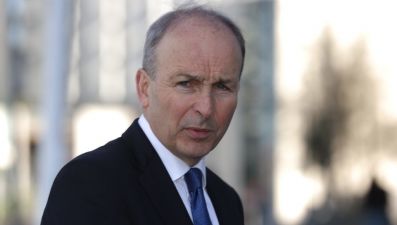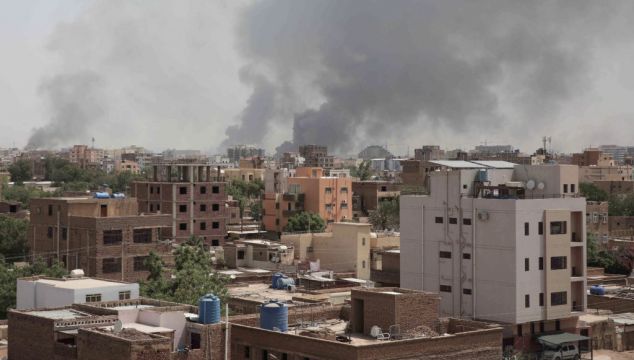The attack on Irish diplomat Aidan O’Hara at his home in Khartoum, Sudan “sent shock waves” through the European institutions, Green Party MEP Ciaran Cuffe has said.
Mr O'Hara, who is the EU ambassador to Sudan after his appointment last year, was assaulted on Monday amid conflict in the country. A European spokesperson later confirmed he was not injured.
“The ambassador’s safety is paramount at this time. We can always withdraw and then bring back diplomatic personnel to the region,” Mr Cuffe told RTÉ radio’s Today with Claire Byrne show.
“I think it is a real concern and I think that the Minister for Foreign Affairs will certainly be in discussions with [EU high representative for security policy Josep] Borrell, and I think it did send a shock through the European institutions when this news came through yesterday.
“We obviously need to protect our people in order that they can continue to render assistance to some of the most vulnerable people on this earth.”
Mr Cuffe said he had been shocked by the news as it was rare that diplomatic staff were the subject of physical abuse.
He added that Mr O’Hara had been with the Department of Foreign Affairs since 1986, had trained as a lawyer, and had served in France, the UK and the Czech Republic.
Mr Cuffe explained that the ambassador's posting, representing the EU in Sudan, was a very important one: “It is a very volatile region, and that came home on Monday.
“Essentially there is military rule in that country and there is ongoing conflict that has killed several hundred people over the last few days.”
The ambassador’s safety was paramount, Mr Cuffe said, and an advisory remained in place for citizens not to travel to Sudan.
“It is clearly a developing situation, but with several hundred people being killed, and that includes a lot of civilians in the last few days, I think the ambassador’s safety is paramount and not just him, but also those who work with him and the European Union.”
Mr Cuffe highlighted that Mr Borrell said the attack was clearly a breach of the Vienna Convention on Diplomatic Relations, which states countries must prevent any attack on diplomats, their freedom and their dignity.
“This was clearly breached yesterday, so I think there will be a review and we'll see what the outcome of that will be,” Mr Cuffe added.

Under the Convention, there is an obligation on all countries to protect diplomatic staff, Mr Cuffe explained.
“It says very clearly in Article 29 that the diplomatic agents shall be invaluable, and they will not be liable to any attack, but clearly there are deep-seated problems in Sudan.
“Over the last 40 years, millions of people have died from famine and from conflict in that region. I think there are huge problems to do with crop failures such as soil degradation.
“The European Union has a strong role to play in providing assistance and providing help to countries like Sudan, and I just worry that this attack will obviously disrupt and cause challenges for the work that the European Union is doing, but it is crucial that both the UN, the EU and indeed the African Union work together to try and bring about peace in that very volatile region.”







